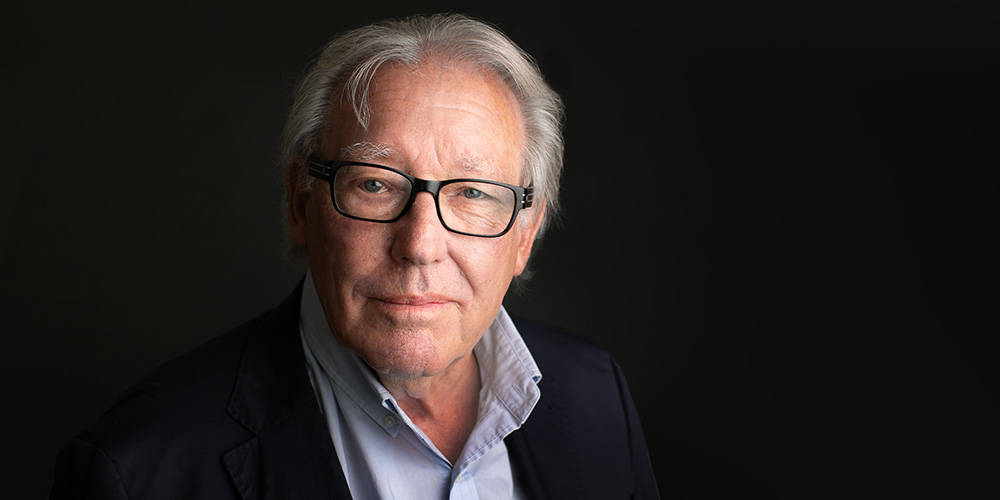Tips and Tricks for Job Applications and Interviews
Having accurate and sophisticated job application documents is crucial. Based on them a decision is made as to whether you will be invited to an interview or not. Ideally, all of the application documents are tailor-made to fit the advertised position as closely as possible. Furthermore, they should be unique and innovative, but at the same time also adhere to certain standards. Once this initial step of preparing and submitting the application documents is taken, the interview hopefully awaits. Here applicants are faced with another difficult challenge: the balancing act between presenting oneself in the best possible light and avoiding any faux pas.
At the CSC of the University of Basel, you will be prepared for the various stages of the application process in a personal consultation; however, below are some tricks to keep in mind for any application.
General information on application documents
-
What to look for
The application documents usually consist of the following elements:
- Cover sheet (not mandatory)
- Letter of motivation
- Curriculum vitae
- Enclosures (diplomas, job references, etc., tailored to the specific application)
What to pay attention to:
- Correct spelling and phrasing are an absolute must!
- The application is uniformly designed (layout, paper, etc.).
- The application is geared to the respective job advertisement and the company (no standard letters); pick out relevant items for the job from your profile and present your motivation for each specific position in a coherent manner.
The application documents usually consist of the following elements:
- Cover sheet (not mandatory)
- Letter of motivation
- Curriculum vitae
- Enclosures (diplomas, job references, etc., tailored to the specific application)
What to pay attention to:
- Correct spelling and phrasing are an absolute must!
- The application is uniformly designed (layout, paper, etc.).
- The application is geared to the respective job advertisement and the company (no standard letters); pick out relevant items for the job from your profile and present your motivation for each specific position in a coherent manner.
Cover letter
The cover letter or letter of motivation is an opportunity to communicate directly with your desired employer. You present your qualifications and strengths and explain the reasons why you are interested in applying for the position. An outstanding letter of motivation allows you to distinguish yourself positively in the eyes of your prospective employer and ensures you will be remembered.
-
What to keep in mind
The letter of motivation is written in the style of a "business letter".
Mandatorily included in a letter of motivation are:
- Your contact details
- the full address of your potential employer with the name of the contact person (without "for the attention of")
- Place and date
- Subject (highlighted in bold, but the term "subject" is not written)
- Address directly to the contact person
- Text (this is best started with a winning opening sentence; the text should cover your current job, your qualifications for the position, your motivation for applying, and the performance skills and goals you would like to bring to the job)
- Greeting ("Yours sincerely"; "Kind regards")
- Signature
- possibly indication of enclosures
- Keep the language concise and precise (length of the motivation letter: max. one page). Avoid empty phrases.
- Be self-confident without trying to sell yourself too arrogantly; use descriptive expressions in the description of your previous activities and qualifications.
- Base your motivation letter on the job advertisement and the potential employer. Do not use standard letters.
The letter of motivation is written in the style of a "business letter".
Mandatorily included in a letter of motivation are:
- Your contact details
- the full address of your potential employer with the name of the contact person (without "for the attention of")
- Place and date
- Subject (highlighted in bold, but the term "subject" is not written)
- Address directly to the contact person
- Text (this is best started with a winning opening sentence; the text should cover your current job, your qualifications for the position, your motivation for applying, and the performance skills and goals you would like to bring to the job)
- Greeting ("Yours sincerely"; "Kind regards")
- Signature
- possibly indication of enclosures
- Keep the language concise and precise (length of the motivation letter: max. one page). Avoid empty phrases.
- Be self-confident without trying to sell yourself too arrogantly; use descriptive expressions in the description of your previous activities and qualifications.
- Base your motivation letter on the job advertisement and the potential employer. Do not use standard letters.
CV
In addition to the letter of motivation, the CV provides the opportunity to present more in-depth information about yourself. The CV usually has a tabular structure (no body text) and uses short phrases. The sections should have an appropriate heading and are structured in reverse chronological order. The CV should be no longer than two pages and, much like the cover letter, tailored to match at he specific position.
-
The following elements should be included in any resume for applications in Switzerland:
- Personal data (name, address, telephone number, serious e-mail address, date of birth, nationality(ies), optional: marital status and children).
- Photo (not obligatory; however, a good photo of a likeable and self-confident person always makes a positive impression)
- Education (schools and all degrees from Matura onwards; subjects of specialization and study are also indicated; if interested, also the topic of a thesis and the grade of the degree)
- Professional experience (employer and place as well as function and a short description of the job)
- Languages (starting with the mother tongue; for foreign languages, use internationally common classifications and mention any language diplomas)
- Computer skills
- possibly other knowledge
- possibly further education
- Hobbies, extracurricular activities, varia, stays abroad (mention activities that are appropriate for the position and indicate positive character traits, e.g. volunteer work)
- The layout of the CV should be clear and simple.
- Give reasons for any gaps in your education or professional career.
- Make sure it is of an appropriate length (no more than two pages). The potential employer should be able to get a picture of you within a few seconds.
- Personal data (name, address, telephone number, serious e-mail address, date of birth, nationality(ies), optional: marital status and children).
- Photo (not obligatory; however, a good photo of a likeable and self-confident person always makes a positive impression)
- Education (schools and all degrees from Matura onwards; subjects of specialization and study are also indicated; if interested, also the topic of a thesis and the grade of the degree)
- Professional experience (employer and place as well as function and a short description of the job)
- Languages (starting with the mother tongue; for foreign languages, use internationally common classifications and mention any language diplomas)
- Computer skills
- possibly other knowledge
- possibly further education
- Hobbies, extracurricular activities, varia, stays abroad (mention activities that are appropriate for the position and indicate positive character traits, e.g. volunteer work)
- The layout of the CV should be clear and simple.
- Give reasons for any gaps in your education or professional career.
- Make sure it is of an appropriate length (no more than two pages). The potential employer should be able to get a picture of you within a few seconds.
Interview
An invitation to an interview is great news! And being well prepared is the name of the game. For this reason, you should do some in-depth research about the prospective employer and company (e.g. company history, business segments, customers, etc.). You should also reread the job ad as well as the application documents you submitted. The interview gives you the opportunity to present yourself in the most favorable light. Explain your motivations and strengths as well as find out more about your potential place of work.
-
What to keep in mind
- Come to the interview well prepared and on time.
- Choose the right clothes for the job and make sure you feel comfortable in them.
- Memorize the names of your interviewers well and address them by them.
- Remain attentive and interested during the interview, don't just be content to answer questions, but sell yourself and also ask questions yourself, e.g.:
- What development prospects does the job offer?
- What further training opportunities are there?
- What expectations do you have of the future job holder?
- What will be the most important tasks in the near future?
- What is the further timeline of the application process?
- Come to the interview well prepared and on time.
- Choose the right clothes for the job and make sure you feel comfortable in them.
- Memorize the names of your interviewers well and address them by them.
- Remain attentive and interested during the interview, don't just be content to answer questions, but sell yourself and also ask questions yourself, e.g.:
- What development prospects does the job offer?
- What further training opportunities are there?
- What expectations do you have of the future job holder?
- What will be the most important tasks in the near future?
- What is the further timeline of the application process?
-
Standard Questions
Questions that are still frequently asked.
About yourself:
- Please introduce yourself!
- Tell something about yourself and who you are as a person.
- How would former supervisors/friends describe you?
- What are your greatest strengths or weaknesses?
- What has been your greatest success or failure?
- How do you handle criticism?
- What was your last job like? What was the last thing you did?
- Why did you choose this particular course of study?
About your work style:
- How would you describe your working style?
- What do you know about our company?
- How do you react to stress?
- How do you deal with time pressure?
- Do you consider yourself a team player?
About the employer:
- What do you know about our company/organization?
- Why did you apply for a job with us?
- What are your expectations of our company? What do you expect from your superiors?
- Why should we choose you? Why exactly are you a good fit for us?
About your expectations and goals:
- What are your professional goals?
- Where do you see yourself in five/ten years? What would you like to have achieved by then?
- What are your salary expectations?
Tricky and sundries:
- Where else have you applied?
- Do you still have questions?
Questions that are still frequently asked.
About yourself:
- Please introduce yourself!
- Tell something about yourself and who you are as a person.
- How would former supervisors/friends describe you?
- What are your greatest strengths or weaknesses?
- What has been your greatest success or failure?
- How do you handle criticism?
- What was your last job like? What was the last thing you did?
- Why did you choose this particular course of study?
About your work style:
- How would you describe your working style?
- What do you know about our company?
- How do you react to stress?
- How do you deal with time pressure?
- Do you consider yourself a team player?
About the employer:
- What do you know about our company/organization?
- Why did you apply for a job with us?
- What are your expectations of our company? What do you expect from your superiors?
- Why should we choose you? Why exactly are you a good fit for us?
About your expectations and goals:
- What are your professional goals?
- Where do you see yourself in five/ten years? What would you like to have achieved by then?
- What are your salary expectations?
Tricky and sundries:
- Where else have you applied?
- Do you still have questions?
Hint
When answering all of these questions, what is most important is to remain calm and relaxed and respond as positively to the questions as possible. Do not become unsettled, and remain honest and sincere.



